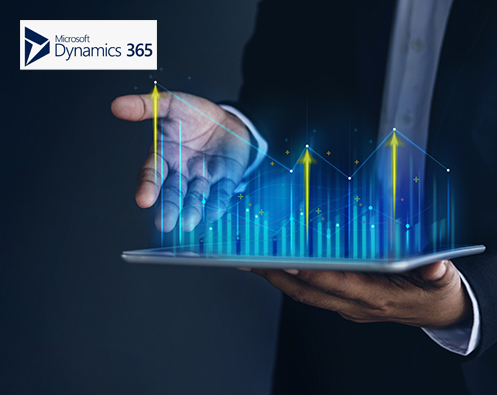In the post-pandemic world, supply chain operations continue to be in flux and remain vulnerable to shocks. To meet these challenges, businesses need to reevaluate their processes and existing ERP systems. The top ERP trends in 2023 are towards emerging technologies and concepts like composable ERP solutions and artificial intelligence to enhance the capabilities of current ERP systems.
Many businesses consider composable ERP software as the strategic direction they need to take. But that is just one of the many options. Here are the five top ERP trends 2023 businesses should watch:
Again, customer-focused sectors like healthcare, retail, utilities, insurance, and professional services require Microsoft ERP solutions to fit customer-linked processes such as project management, order management, and omnichannel customer experience. So, vendors will be keen to digitize such processes close to the fundamental ERP system. The ERP trends 2023 are towards composable enterprise solutions with the best functionalities.
ERP vendors, particularly those catering to ERP for retail and manufacturing, would require a flexible Enterprise Application Platform or EAP that allows for a composable strategy with the right mix of apps and business solutions. The goal is to change the monolithic system to composable items to allow orchestration, autonomy, and modularity.
Increasingly, entities and business partners would like to embed their services in ERP systems to add additional value. What this allows you to do is bring operational data to your flow of work. Imagine performing your tasks and viewing the data you need within the Microsoft Teams environment, without needing to login to multiple solutions. Navigating to the relevant screens and then crunching the numbers to get meaningful insights. You perform more tasks within the Teams environment, and since you don’t need to spend on additional licenses for these extended capabilities you are essentially making your team more productive without incurring additional operational costs.
With budget constraints and price burdens imminent, it’s predicted that more enterprises will need to maximize the returns from their ERP investments and hold back on making additional investments in third-party solutions. This will be a challenge because it will be difficult to find one ERP solution, especially ERP for manufacturing, that meets all your needs.
When it comes to the ERP trends 2023, it is that innovative technologies including artificial intelligence, the Internet of Things, and mobility have been developed to a point where these are no longer sold as individual modules. They have now become part of ERP solutions, including ERP for retail and manufacturing, and are a part of the core offering. Mobile-specific features like geofencing or GPS tracking, for example, are increasingly being seen as a part of the standard solution, although some vendors still offer it as an extended feature.
The portable, IoT-powered apps and devices will help your company to collate useful data from every aspect of your organizational operations and improve your business processes via effective system monitoring. For instance, Mobile Time Booking and Capture Solution will learn about your typical and present locations. They will know about what projects are in progress at which location. With the new Accounts Payable Automation features, you can help your team save time and become more efficient by automating manual processes of inputting data and reconciliation while ensuring data accuracy and increased speed.
The typical benefit of ERP systems is that all things look similar, but every user has unique needs. So, you look ahead to see greatly enhanced user experiences customized to individual requirements. Here AI possibly plays a key role in fine-tuning the applications and offering more personalized experiences. The user-friendliness, simplicity, and customization are not only meant for individual users but also for your teams. These will be important features vendors will adopt in the days to come.
In the post-pandemic world, extensive data breaches and security attacks are concerning business leaders. According to IT Governance, 1,063 security occurrences were discovered in 2022. With a considerable segment of employees continuing to work remotely or in a hybrid mode, business systems such as ERPs, including ERP for manufacturing and retail, aren’t prepared to manage such security threats created by remote work.
Based on a 2021 report by a technology major, the data breach cost for each incident touched $4.24 million, the maximum in 17 years. Industries that witnessed significant operational changes after the pandemic, including healthcare, retail, hospitality, manufacturing, and distribution, also saw a considerable increase in data infringement costs. So far, the most expensive data breach is in healthcare, accounting for $9.23 million for every occurrence.
Consequently, systems using loads of data, especially ERP as well as other integrated systems such as Customer Relationship Management (CRM) are facing significant threats. So, businesses are accelerating their energies to make their Microsoft ERP solutions secure. With work opportunities heavily relying on hybrid, remote, or distributed arrangements, enterprises want to prioritize ERP security.



